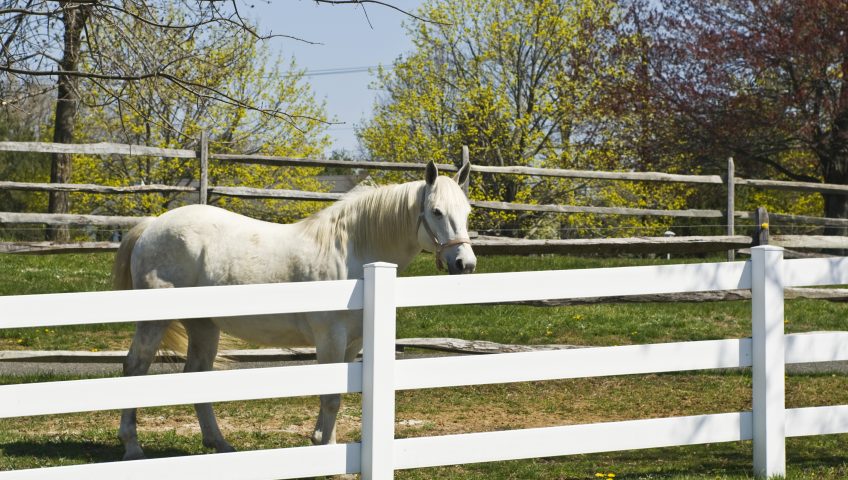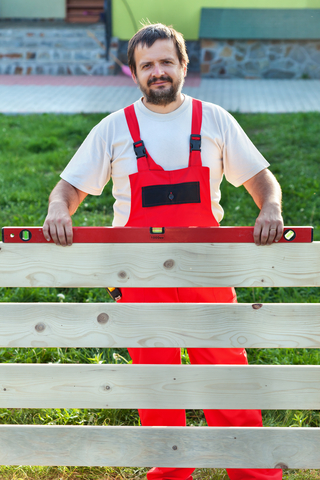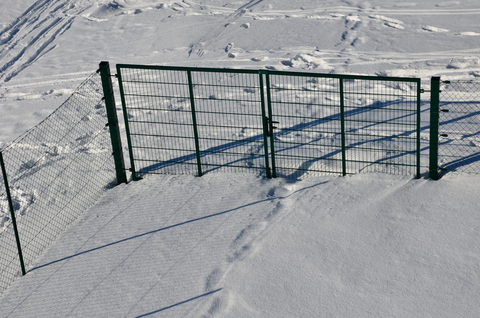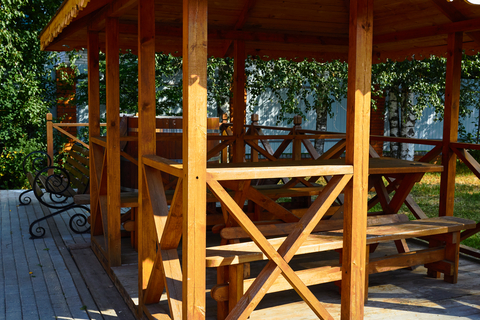Guide to Farm Fencing – Which is Best?
Published on 9 September 2024

When it comes to choosing the best farm fencing, there is no one-size-fits-all solution. The right fence for your farm will depend on numerous factors.
In this guide, we’ll discuss these factors in more detail to help you make an informed decision on the best fencing option for your farm. Whether you’re looking for cost-effective fence panels or maximum security for your livestock, we’ve got you covered.
How to pick the best fencing for your farm?
Before you begin selecting styles of fencing, it’s crucial to identify your needs and understand what you want the fence to provide.
This may involve assessing the type of animals you have and their behaviour, the terrain and size of your property, and any potential risks such as predators or neighbouring livestock. You may also wish to take into consideration additional aspects such as privacy or how aesthetically pleasing you want the fence to be.
By understanding your needs, your fencing supplier can help you choose a fence that meets any requirements you may have.
Fencing for livestock
When it comes to fencing for livestock, it’s important to recognize that each type of animal has different needs and behaviours that require specific types of fencing. Let’s take a look at a few examples of how fence needs may differ depending on the types of animals you own.
- Horses will need a visible fence that can’t hurt them. A height of at least 4 to 5 feet will prevent them from jumping over it.
- Cattle can be contained by almost any sturdy fence that can withstand their weight and strength. Barbed wire or woven wire fencing is a good option.
- Sheep require a similar type of sturdy fence to cattle, but it’s important to avoid barbed wire as it could injure them.
- Pigs need a strong fence with additional protection added to avoid them from burrowing underneath it, such as barbed wire or electric wire on the bottom.
- Chickens can be contained by the majority of fences, but it’s important to ensure it has a good height and can’t be dug underneath to protect them from predators.
By knowing the specific needs of your livestock, you can select the appropriate type of fencing that will provide maximum safety and security for them.
Fencing for crops
When it comes to protecting your crops from wildlife, you need to understand which animals pose a threat and take appropriate measures to deter them.
To prevent wildlife like rabbits from accessing your crops, a solid fence like woven wire is recommended, with additional protection to prevent burrowing.
In more rural areas, deer can become a threat to certain crops, if this is a problem you are facing, you may wish to install fencing that is over 4 feet high.
You may also want to consider adding deterrents such as netting or electric fencing to further discourage wildlife from entering your crops. By taking appropriate measures, you can ensure a successful harvest and protect your investment.
Types of Fencing
There are several types of fencing commonly used on farms, each with its own set of specifications and benefits.
- Post and Rail Fencing is made up of horizontal rails attached to vertical posts. It’s a popular choice for containing horses and livestock as it’s visible, durable, and can be customized to fit any size area.
- Barbed Wire Fencing provides strands of wire with sharp barbs spaced at regular intervals. It’s a cost-effective option for containing cattle and other large livestock, but can be dangerous if not installed properly.
- Woven Wire Fencing is built by interlocking wires that create a solid barrier. It’s a good choice for containing sheep and goats, as well as for protecting crops from wildlife.
- Electric Fencing uses a low-voltage electric charge to create a barrier that deters livestock from crossing. It’s a versatile option that can be easily adjusted to fit different areas.
- Mesh Fencing is made up of a wire mesh that creates a sturdy barrier. It’s a popular choice for containing chickens and other small livestock.
Installation and Maintenance
After selecting the appropriate type of fencing for your farm, you will then want to consider the installation process. Some fences may be more difficult to install than others and may require specialized equipment or professional installation.
Secondly, you will then want to decide how much maintenance you are willing to put into keeping your fences secure, for example, barbed wire fences need to be checked regularly for any broken or loose wires that could be a safety hazard for animals.
Cost Considerations
Finally, when selecting the best fencing option for your farm, you will need to consider the costs associated with each type of fence. Some fences may be more expensive to install than others, and certain materials may be more costly to maintain over time. However, it’s important to remember that the cost of a fence is an investment in the security and safety of your livestock and crops.
A well-designed and properly installed fence can help to prevent costly damage from extreme weather or rogue wildlife, which can save money in the long run. By carefully considering the costs associated with each fencing option, you can select a solution that meets your personal needs without breaking the bank.
Work with a reputable fencing supplier
Working with a reputable fencing supplier can make a big difference in the success of a farm fencing project. At Linnell Bros Ltd, we are committed to providing our customers with high-quality, sustainable timber and fencing supplies at competitive prices.
As a one-stop-shop for all fencing needs, we offer a wide range of options to meet the specific needs of each farm. Our knowledgeable team is always available to answer any questions and help our customers choose the best fencing solution for their needs. Get in touch today by calling 01327 354422 or email us at info@linnellbros.co.uk. Alternatively, please complete our contact form and we will be in touch at a time to suit you.





